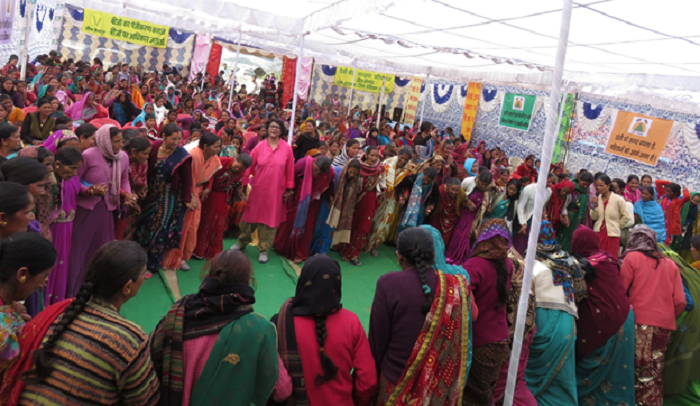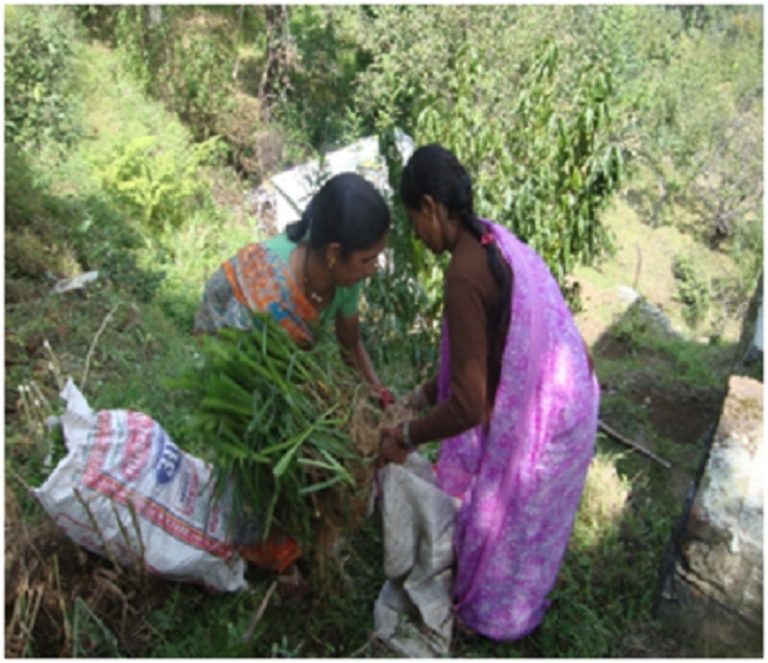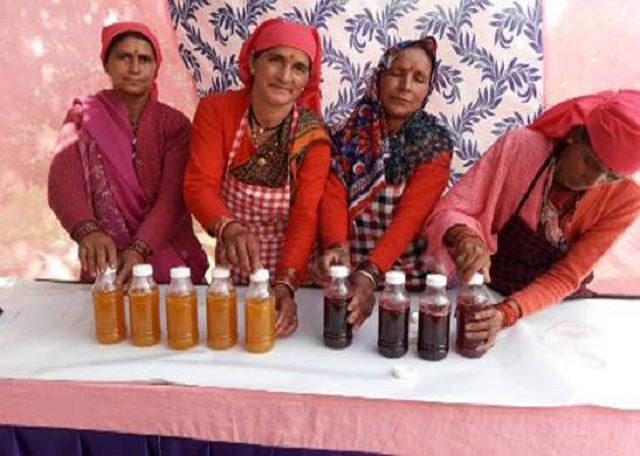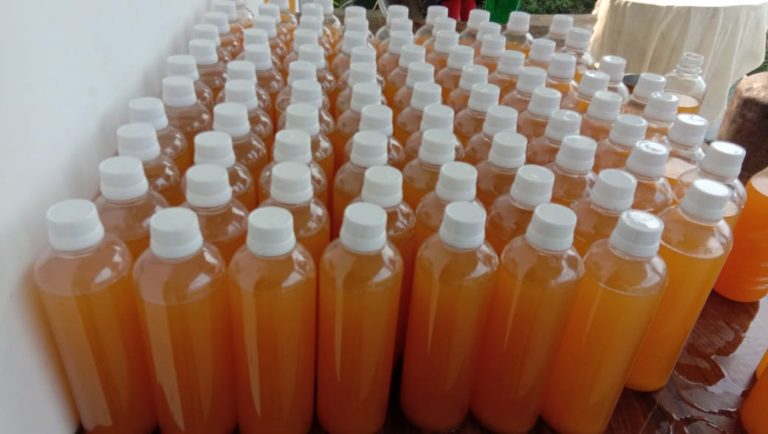Gene Campaign (GC) , a leading research and advocacy organization working on agriculture, food, nutrition and livelihood security has been working in Uttarakhand for the past 15 years. GC’s special focus is on women farmers of the region, on empowering them to articulate their needs and to get their legitimate dues.
GC’s main focus has been on making agriculture and food production sustainable and climate resilient, conserving traditional varieties of crops and setting up seed banks to give farmers more seed choice, improving household nutrition by developing homestead gardens providing fresh vegetables year round and reviving the nutrition rich, wild and semi-domesticated plants like nettles and ferns that were eaten as vegetables earlier but are being abandoned. Also being revived are traditional food grains like different millets and amaranth which are climate resilient , nutrition dense foods which are getting rapidly displaced by the wheat-rice of the PDS system.
Gene Campaign recently organized a convention of women farmers. The Mahila Kissan Sammelan ( Women Farmers Convention) was organized in village Simayal-Reetha, near Gene Campaign’s field station in village Orakhan situated in Ramgarh block of Nainital district. Over 600 women farmers from 50 villages in the Ramgarh, Dhari and Okhalkanda blocks of Nainital district, participated in the Convention.
The purpose of the Mahila Kissan Sammelan was to create a platform for women farmers (who bear the major burden of agriculture in mountain states), in order to empower them and to include them in the process of decision making regarding the development of their region. The platform was also to create linkages between the women farmers of the region who could create networks and share experiences and information as well as seeds with each other.
The Sammelan enabled the women farmers to interact directly with district and block level officials, agriculture scientists, panchayat leaders and local political leaders. This provided the opportunity to get information about government schemes and projects, where they could get loans and credit, what subsidies they could avail of etc. The women explained the problems they face in agriculture and the kind of support they would like. They wanted solutions, information, redress and channels through which they could interact with scientists and officials regularly.
The district agriculture and horticulture officers, the development officials, officials of the Block offices, officials of Nabard and the State Bank of India , officials of the veterinary and livestock depts.., scientists of the Temperate Fruit Research Station, the Indian Veterinary Research Institute and the local Krishi Vigyan Kendras, as well as the block pramukh and deputy chairman of the District Panchayat participated in the convention and interacted with the women.
Women farmers from Simayal said that they had received training from Gene Campaign in vermicomposting and demo units had been established in villages. Now they wanted the government to subsidize vermicomposting so that each family could afford to have its own compost pit to improve its agriculture and increase its food production.
Water is scarce in the mountains which are monsoon dependent, hence all the women wanted government support to create water tanks in individual homes to conserve rainwater and use it to produce some additional food. Gene Campaign has been helping farmers to create such ‘jal kunds’ on a cost sharing basis and it would be very good if government could scale up this critical and useful activity.
Most of the women who cultivate millets bemoaned that wheat and rice get all the government support in research and subsidies but millets which are much more nutritious and will stand up to the changing climate , get no support at all. Women farmers who cultivate vegetables complained that when they buy seed from the market, they are often cheated with spurious seeds. How can they claim compensation for the lost crop ? How can the company selling the bad seed be made liable ?Women farmers wanted to have a say in development plans for the area , especially with respect to water and agriculture.
The convention ended with a visit to the community seed bank established by Gene Campaign and the training center where the farmers could see nurseries of plants, different models of rainwater tanks and vermicompost units, mulching, bunding and other means of making agriculture climate resilient.
Dr Suman Sahai, Founder Chairperson of the Gene Campaign said the organization’s goal was to make women farmers confident, self-reliant and empowered to take decisions and make demands. Creating enabling platforms and interphases for women farmers will be a regular part of Gene Campaign’s work in Uttarakhand




